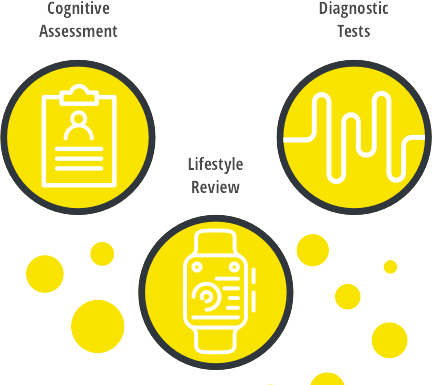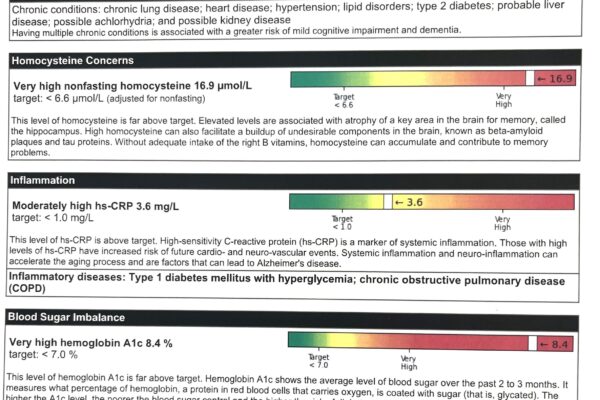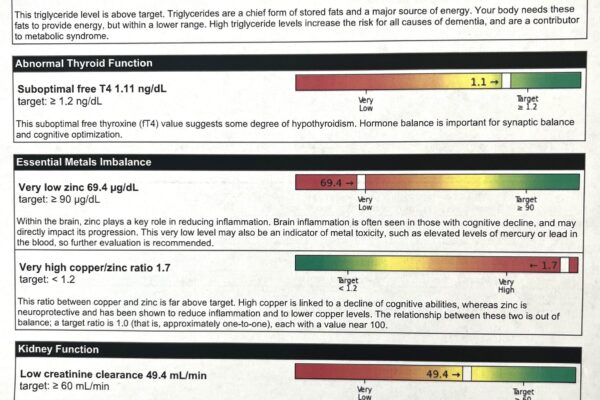Brain health is extremely important. A large part of what we do at Alliance is focused on maintaining and improving brain health. As we age, we all slow down, both physically and mentally, and we want to decrease the decline of both as much as possible. One of the ways we are able to evaluate cognitive changes is by doing lab work, then evaluating that in context with the entire person. We have partnered with Quest Lab and UMethod to provide a test known as RestoreU Method in order to have a more inclusive way of evaluating someone’s cognitive function. This is used in conjunction with the Cognivue test, other labs and possibly imaging, which were described in a previous blog.

There are many causes of cognitive decline, including but not limited to, aging, metabolic derangements, cardiovascular issues, nutrient deficiencies, hormone imbalances, sleep issues, metal toxicity, and medications. By running this test, along with other appropriate tests, we can evaluate these issues, and provide a plan to refine what can be improved.
Just as we did with the cholesterol profile, let’s use a real patient scenario to walk through the results of a test. As always, not everyone’s test will look the same – we always personalize what we order based on the individual.
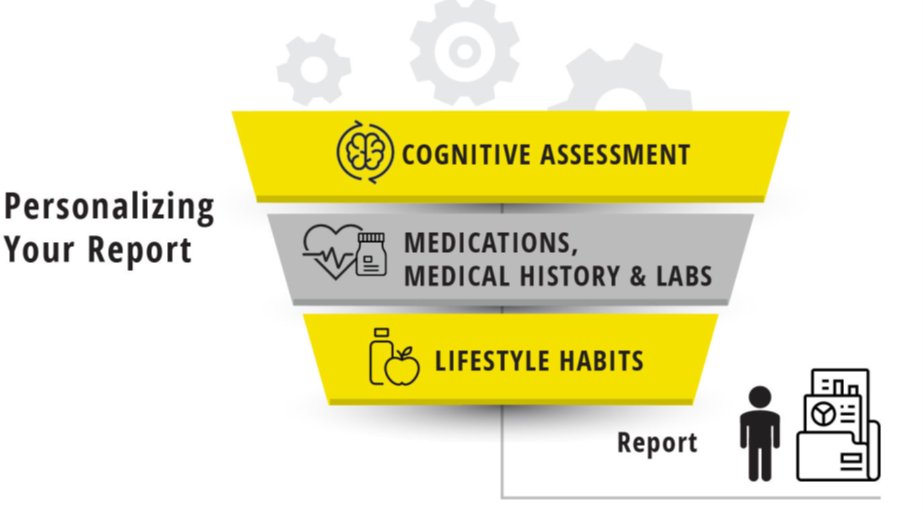
Zelda is a 66 year old post menopausal female who has a normal body mass index (BMI), and her blood pressure is currently in the normal range. She does have a medical history of diabetes, hyperlipidemia, hypertension, COPD, chronic pain, peripheral nerve disease, and she presented with a chief complaint of short term memory issues. She is on multiple medications to treat her multiple medical conditions.

Zelda had what we consider a reasonable set of labs to evaluate for potential reversible or treatable conditions. The tests included the majority of what is shown below (we add or remove certain tests based on the level of appropriateness or because they have been done previously).
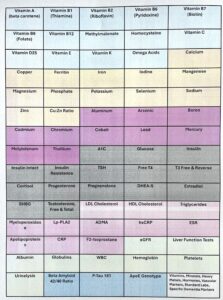
As you can see, it is a fairly comprehensive search for vitamin deficiencies, mineral deficiencies, heavy metal exposures, hormonal aberrations, vascular inflammation, and includes some very specific tests related to an illness we all fear, Alzheimer’s disease.
The RestoreU report itself starts with a summary of what tested areas are likely contributing to or not likely contributing to cognitive impairment or memory loss:
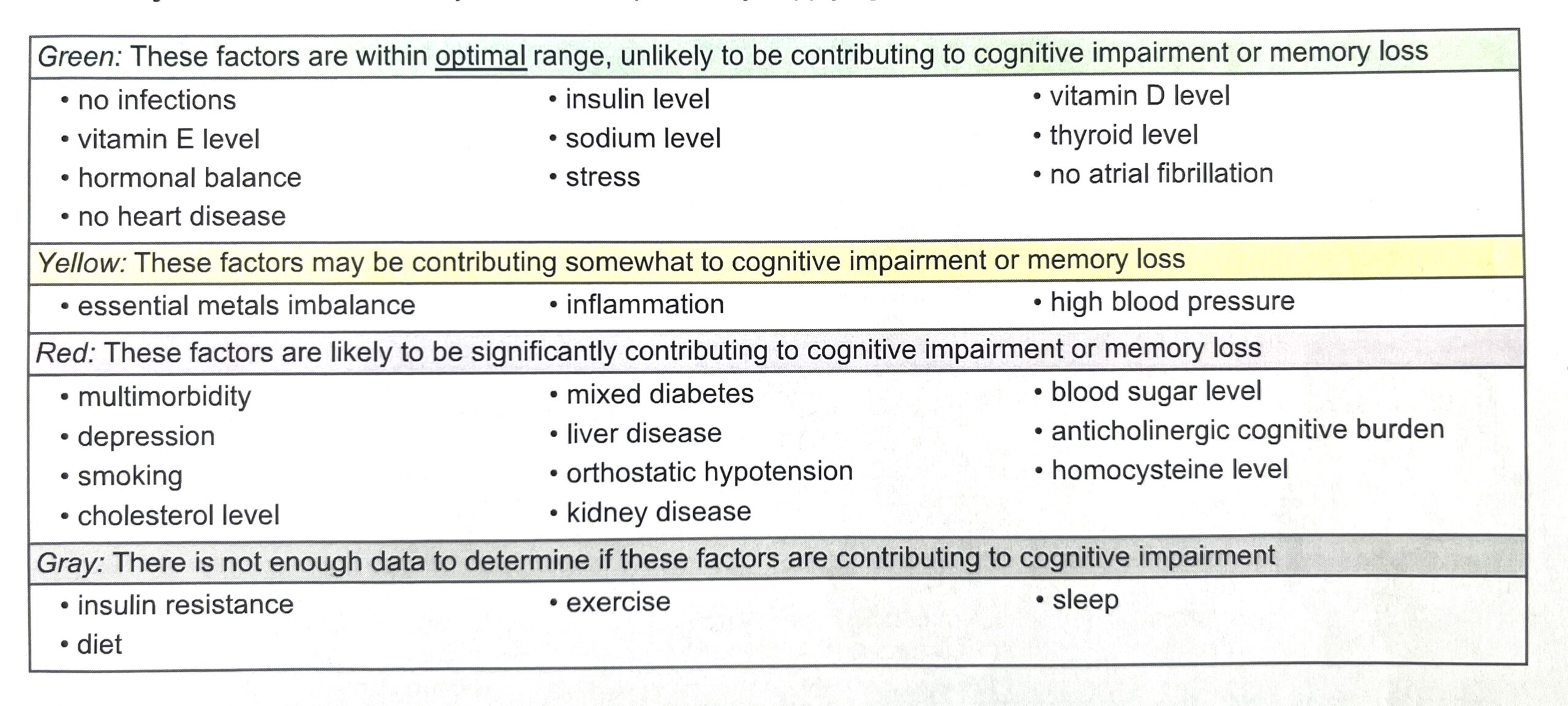
As seen above, the areas of most concern for her include issues not only related to the blood and urine tests that were run, but also known medical problems, including depression, diabetes, smoking and medication use (this is shown by the anticholinergic cognitive burden).
Next, an action plan is listed. In Zelda’s case they list several supplements that they consider helpful for her, as well as why she should be taking them.
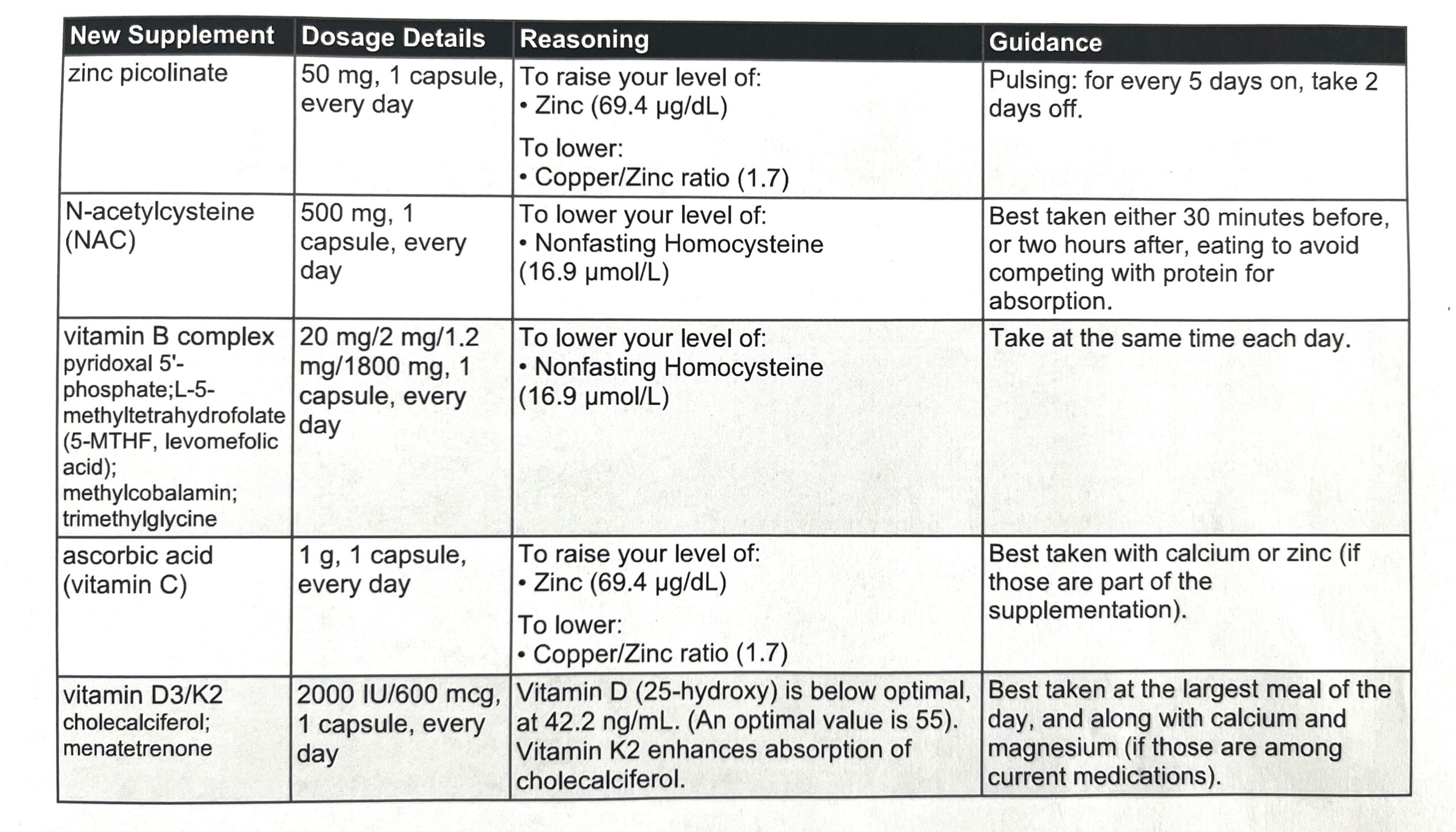
Then there are useful lifestyle modifications which can help cognitive function, including stress relief, restful sleep, overnight fasting, appropriate exercise, balanced nutrition, good hygiene and brain exercise.
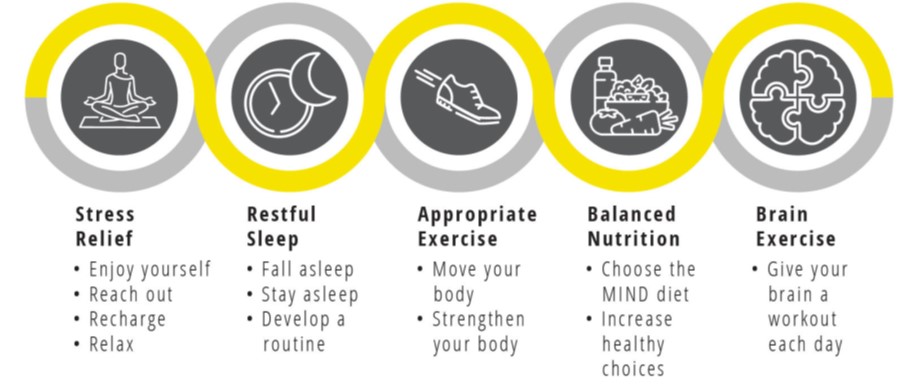
Given how important nutrition is to brain health, an entire section is dedicated to discussing an appropriate diet, including food groups that are recommended to include and food groups recommended to avoid.
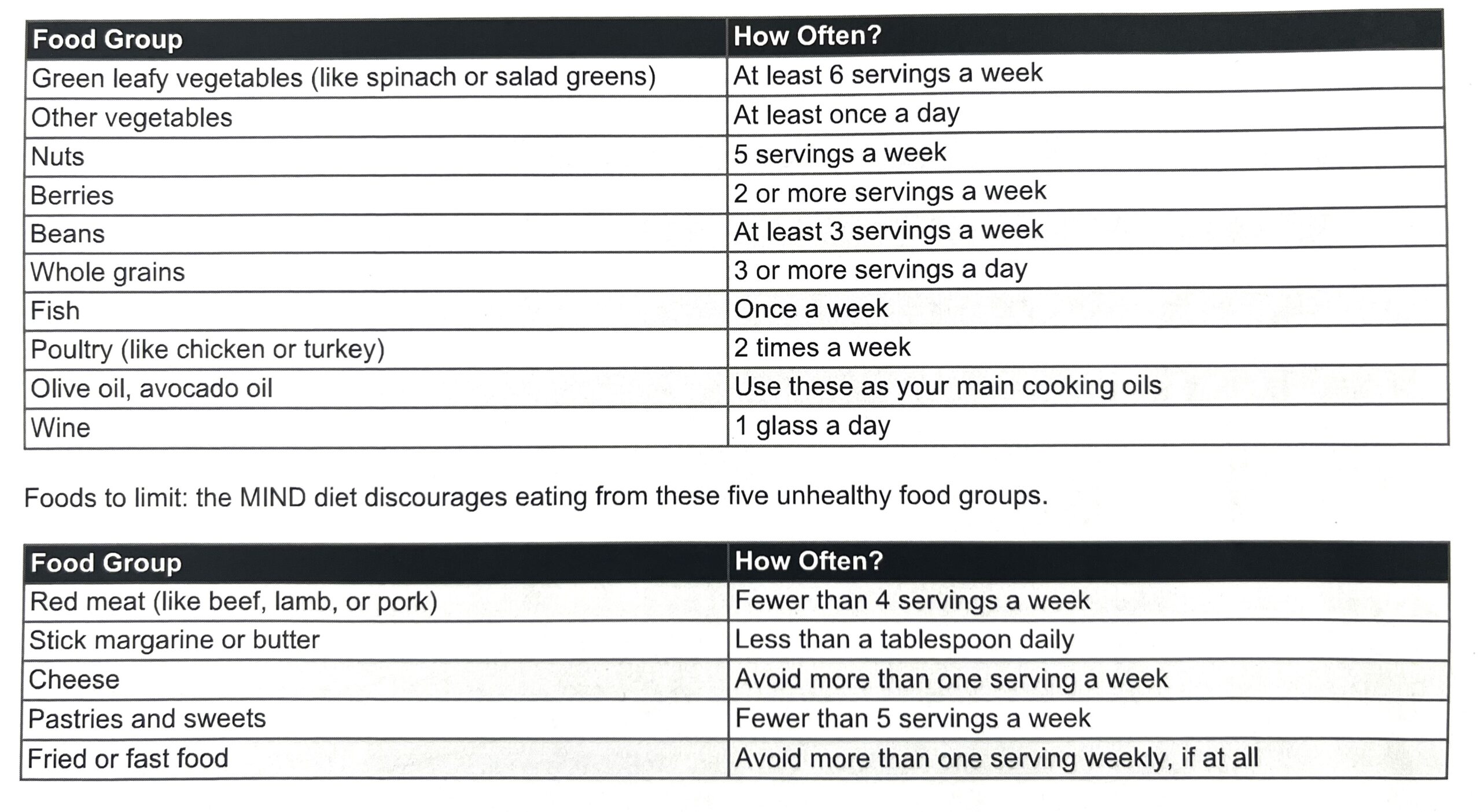
Finally, many of the labs that were tested are presented along with the optimal or target value identified. The report also includes a discussion of how each lab affects cognition.
Zelda has several areas of concern identified by reviewing her personal history, medications and lab results. From these areas, an action plan has been developed, which can help her to maximize her cognitive potential, by minimizing the medication reactions, working on fixing abnormal lab values, improving diet, sleep, exercise and other areas in her life.
Cognitive decline is complicated. Multiple tools need to be integrated in order to provide a complete understanding of why it is happening and any interventions that may be possible. As modern medicine advances, there is a better understanding of the multimodal causes of this decline, but it takes a lot to sort it all out. At Alliance, we have both the time, the experience, and the resources to take a deep look and formulate a comprehensive plan.
The purpose here was to highlight one of the tools we are using, the RestoreU Method. As good a tool as it is, we feel the need to complement it with other tests (some of which are highlighted in other blogs on our website at alliance-phc.com), such as the Cognivue test, the pharmacogenomic test, the advanced lipid profile, imaging studies such as MRI and ultrasound, physical therapy consultation and potential genetic screening.
It seems like a lot, and it is. What we will then do is interpret the results with you, and then formulate a plan with you, in order to optimize your cognitive function and hopefully slow any decline already noted. This is what we do, and we always do it with you.


